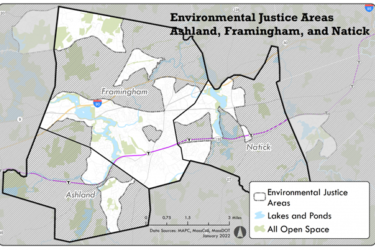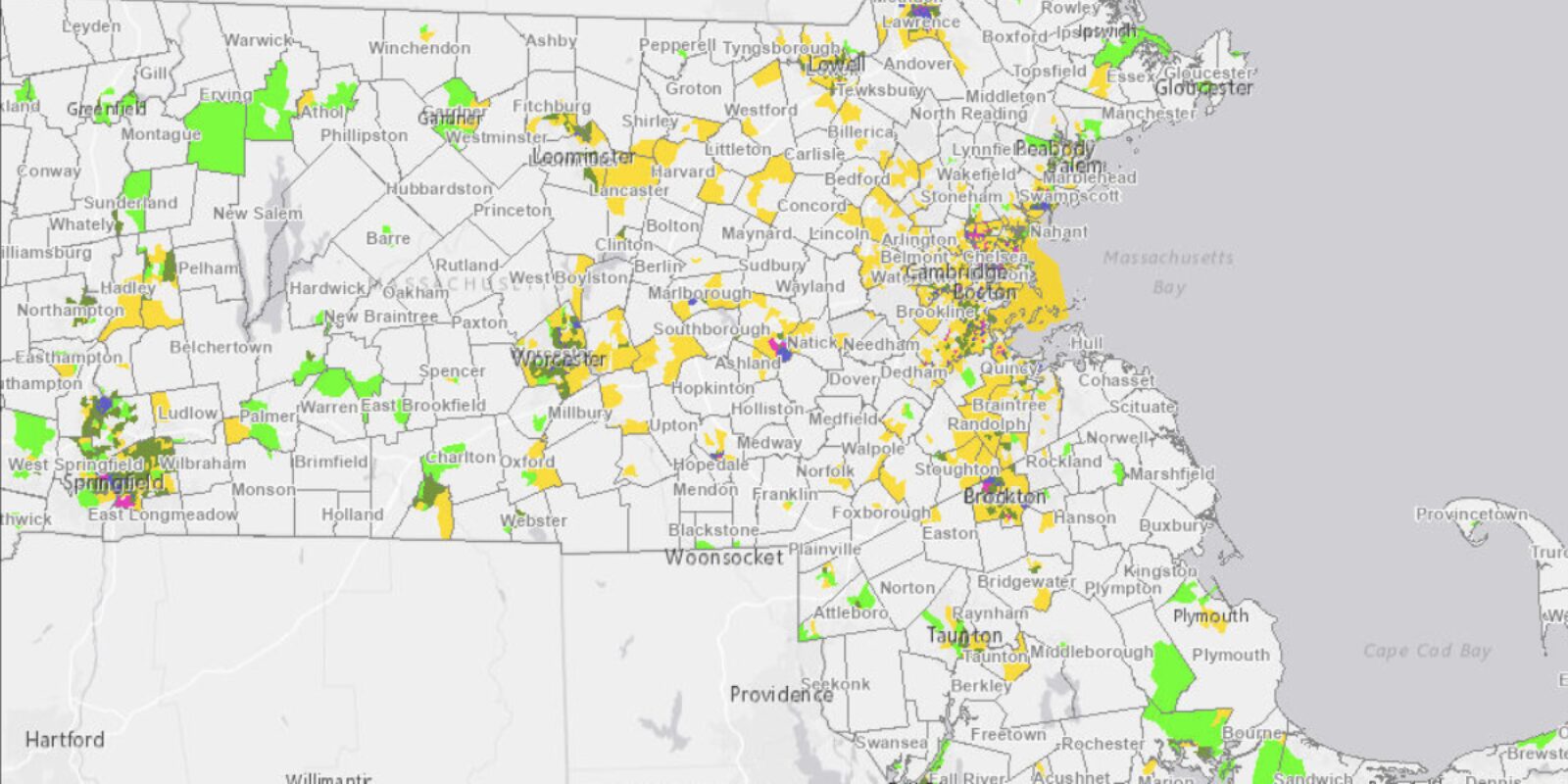By Jillian Wilson-Martin, Director of Sustainability, Town of Natick
April 28, 2022
Editors Note: Where we live, work and play dramatically affects our health in countless ways- from the air we breathe to the food we eat. Climate change is accelerating environmental health concerns. As we attempt to mitigate its consequences, we must also plan to live with them. At the forefront of this work is partnering with communities who are most adversely impacted by environmental health concerns to address the inequitable health outcomes that currently exist. As Earth Month comes to an end, we are highlighting a project in the region focused on environmental justice and climate change and asked Jillian Wilson-Martin, Director of Sustainability for the Town of Natick to share her perspective about this important work. R.D.
Climate change is one of the biggest risks to public health, but it will not affect every community equally. Similar to what we have witnessed during COVID-19, neighborhoods where people of color, people with limited understanding of English, and people with low incomes live are expected to endure a greater burden.
The Massachusetts Office of Energy and Environmental Affairs uses census data to identify these neighborhoods, known as Environmental Justice communities, and prioritizes funding projects in them.
More than 130,000 MetroWest residents live in Environmental Justice neighborhoods, with a large cluster (approximately 60,000 people) located in the neighboring communities of Ashland, Framingham and Natick.

As part of a recent Municipal Vulnerability Preparedness grant, Ashland, Framingham and Natick are partnering with the Metropolitan Area Planning Council to better serve these neighborhoods by working to address the intersection of climate change, health and equity.
The project began last fall and has three goals:
1. Build lasting relationships with local Environmental Justice neighborhoods that will facilitate long-term engagement on climate change resilience and action,
2. Learn from the community about how they experience climate change and what their climate priorities are, and update local plans and direct funding to reflect findings, and
3. Increase municipal staff’s knowledge of climate equity through training and improve their capacity to support and engage Environmental Justice communities.
Using a model based on the Voices of the Community project (a MetroWest Health Foundation Community Innovation Grant recipient), Ashland, Framingham and Natick are working with community-based organizations and paid-community liaisons to learn directly from the residents living in the Environmental Justice neighborhoods.
On Earth Day, the communities launched a Climate Conversation Survey (available in English, Spanish and Portuguese) to help identify actions local government can take to help Environmental Justice neighborhoods prepare for climate change. This summer, after synthesizing the results, the municipalities will host follow up Climate Conversation picnics with residents to discuss solutions. With this information in-hand, the municipalities will revise local plans to reflect Environmental Justice priorities and begin work to fulfill them.
Learn more and follow the team’s progress here.
For more Equity Matters, visit Foundation Publications

